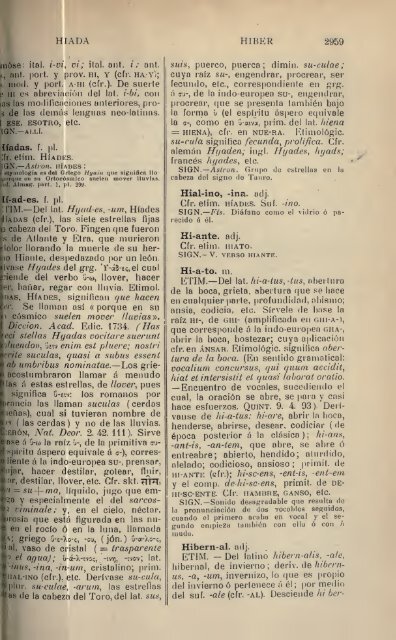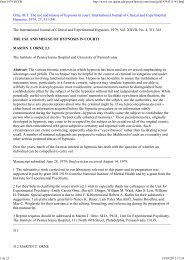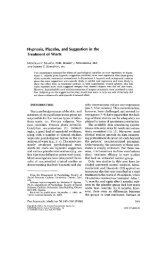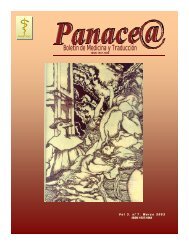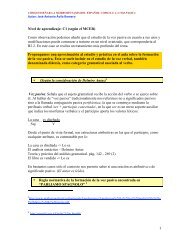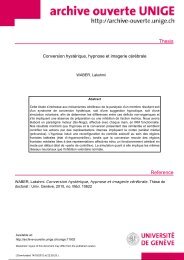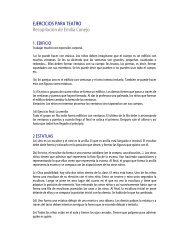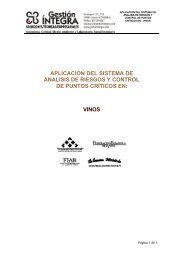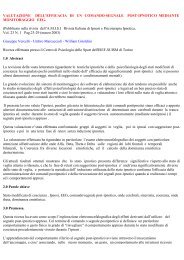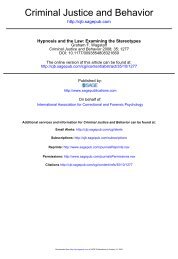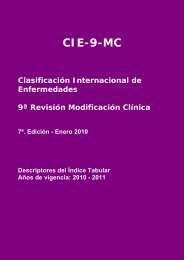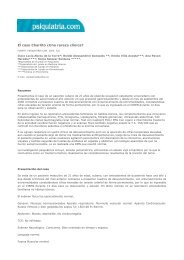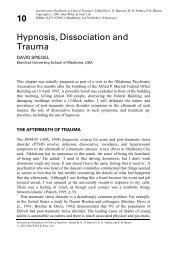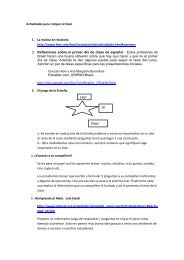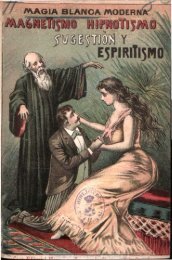Diccionario filológico-comparado de la lengua castellana
Diccionario filológico-comparado de la lengua castellana
Diccionario filológico-comparado de la lengua castellana
Create successful ePaper yourself
Turn your PDF publications into a flip-book with our unique Google optimized e-Paper software.
HIADA HIBHR 2959<br />
imóse: ital. i-vi, vi; i<strong>la</strong>l. aiit. i; ant.<br />
1., nnf. |)Oit. y prov. hi, y (cfr. ha. y'i;<br />
K niod. y port. am (cfr.). De suerle<br />
lí HI es abrevi.icióii <strong>de</strong>l <strong>la</strong>t. i-bi, con<br />
IOS Iqs modiíicíicioiies anteriores, proís<br />
<strong>de</strong> los <strong>de</strong>más <strong>lengua</strong>s neo-<strong>la</strong>linns.<br />
I ESE, ESOTRO, ClC.<br />
(GN.— ALLÍ.<br />
{fadas. f. pl.<br />
;fr. eti'm. Hía<strong>de</strong>s.<br />
jGy^.—Asíron. hía<strong>de</strong>s :<br />
5 etyinología es <strong>de</strong>l Griego Hi/ain que signifíca llo-<br />
porque en su Ortocósinico suelen mover lluvias.<br />
J ol. Almag. part. 1, pl. 309.<br />
íí-ad-es. f. pl.<br />
'. riM.— Del <strong>la</strong>t. Hyad-es, -uní, Hía<strong>de</strong>s<br />
jÍADAS (cfr.), <strong>la</strong>s siete estrel<strong>la</strong>s fijas<br />
"nbeza <strong>de</strong>l Toro. Fingen (jiie fueron<br />
le .At<strong>la</strong>nte y Etra, que murieron<br />
)r llorando <strong>la</strong> muerte <strong>de</strong> su her-<br />
lliante, <strong>de</strong>spedazado por un león.<br />
!se Hya<strong>de</strong>s <strong>de</strong>l grg. 'r-á5-£ umbribus nominatae.—Los grieiL'ostumbraron<br />
l<strong>la</strong>mar á menudo<br />
li<strong>la</strong>s á estas estrel<strong>la</strong>s, <strong>de</strong> llover, pues<br />
-ignifica u-£iv: los romanos por<br />
ncia <strong>la</strong>s l<strong>la</strong>man súcu<strong>la</strong>s (cerdas<br />
ñas), cual si tuvieran nombre <strong>de</strong><br />
( <strong>la</strong>s cerdas) y no <strong>de</strong> <strong>la</strong>s lluvias.<br />
óN, Naí. Deor. 2.42.111). Sirve<br />
f' ó 'j-o) <strong>la</strong> raíz •>-, <strong>de</strong> <strong>la</strong> primitiva auíiitu<br />
áspero equivale á a-), corres-<br />
^nte á <strong>la</strong> indo-europea su-, prensar,<br />
ir, hacer <strong>de</strong>sti<strong>la</strong>r, gotear, fluir,<br />
, <strong>de</strong>sti<strong>la</strong>r, llover, etc. Cfr. skt. HFT»<br />
^su-{-ma, líquido, jugo que em-<br />
1 y especialmente el <strong>de</strong>l sarcos-<br />
'iminale; y,<br />
sía que está<br />
en el cielo,<br />
figurada en<br />
néctar,<br />
<strong>la</strong>s nuil<br />
el rocío ó en <strong>la</strong> luna, l<strong>la</strong>mada<br />
griego 'j-£->o-;, -O'j,<br />
( jón. ) li-a-Xo-;,<br />
vaso <strong>de</strong> cristal ( = trasparente<br />
ea gha-,<br />
abrir <strong>la</strong> boca, bostezar; cuya a|ilicación<br />
cfr. en ánsar. Etimológic. significa abertura<br />
<strong>de</strong> <strong>la</strong> boca. (En sentido gramatical:<br />
vocalium concursus, qui quum accidit,<br />
hiat et intersistit et quasi <strong>la</strong>boral oratto.<br />
— Encuentro <strong>de</strong> vocales, sucediendo el<br />
cual, <strong>la</strong> oración se abre, se para y casi<br />
hace esfuerzos. Quint. 9. 4. 93). Derívanse<br />
<strong>de</strong> hi-a-tus: hi-are, abrir <strong>la</strong> hoco,<br />
hen<strong>de</strong>rse, abrirse, <strong>de</strong>sear, codiciar (<strong>de</strong><br />
época posterior á <strong>la</strong> clásica); hi-ans,<br />
-ant-is, -an-tem, que abre, se abre ó<br />
entreabre; abierto, hendido; alurdido,<br />
ale<strong>la</strong>do; codicioso, ansioso ; primit. <strong>de</strong><br />
HI-ANTE (cfr); hi-sc-ens, -ent-is, ent-eni<br />
y el comp. <strong>de</strong> hi-sc-ens, primit. <strong>de</strong> <strong>de</strong>ni-SC-ENTE.<br />
Cfr. HAMBRE, GANSO, etC.<br />
SIGN.— Sonido <strong>de</strong>sagradable qtie resulta <strong>de</strong><br />
<strong>la</strong> pronunciación <strong>de</strong> dos vocaldcs seguidos,<br />
cuando el primero acaba en vocal y el segundo<br />
empieza también con el<strong>la</strong> ó con h<br />
muda.<br />
Hibern-al. adj.<br />
ETIM. — Del <strong>la</strong>tino hibern-alis, -ale,<br />
hibernal, <strong>de</strong> invierno; <strong>de</strong>riv. <strong>de</strong> /í/6í'/7íus,<br />
-a, -um, invernizo, lo que es propio<br />
<strong>de</strong>l invierno ó pertenece á él; |»or medio<br />
<strong>de</strong>l suf. -ale (cfr. -al). Descien<strong>de</strong> hi ber-


